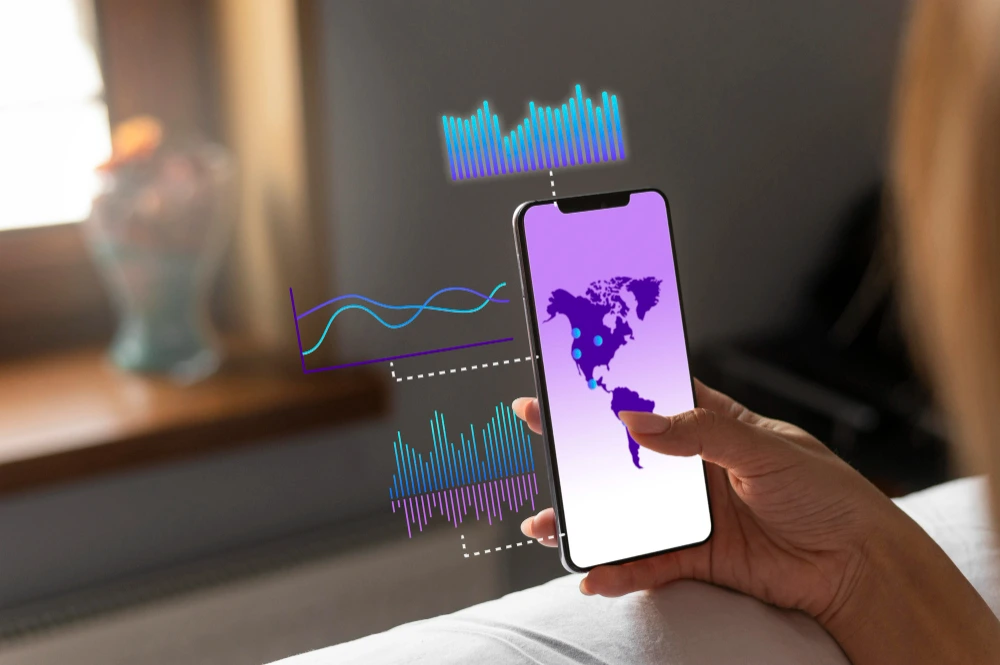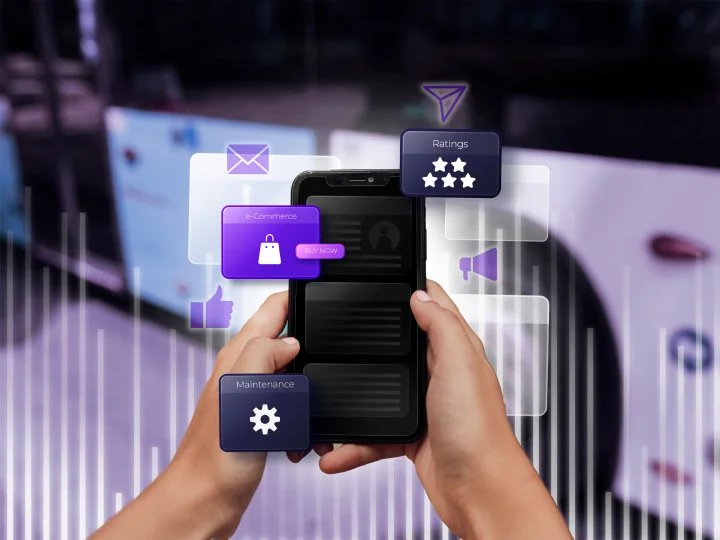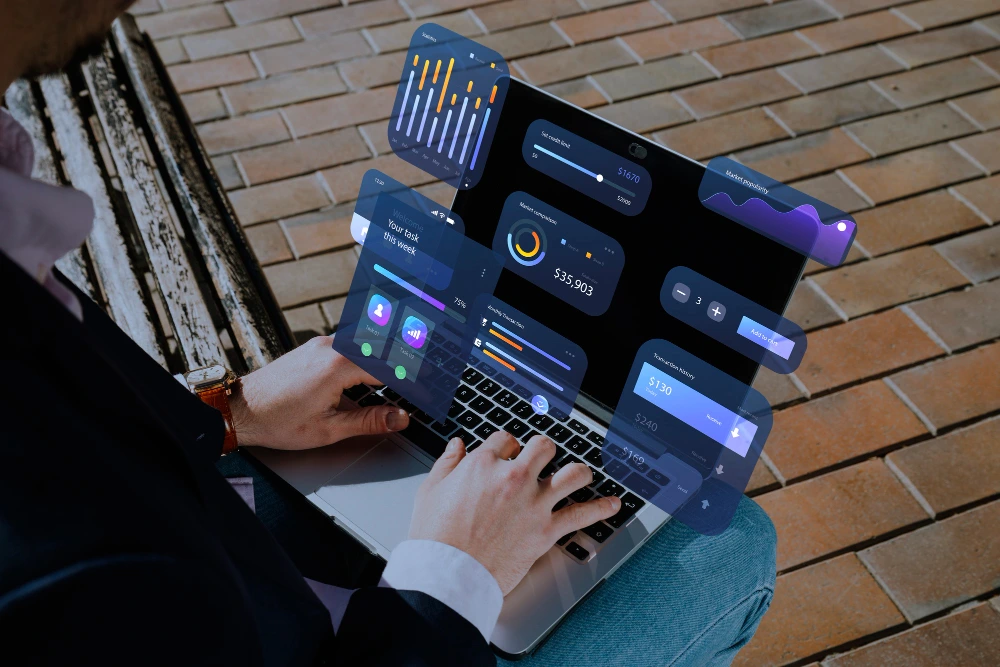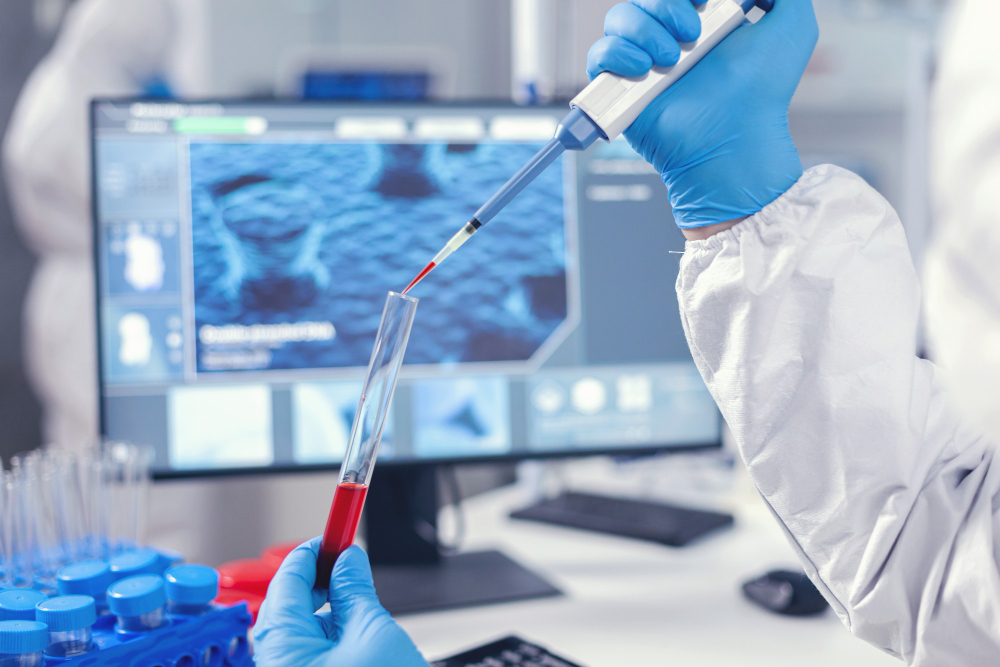
Smart, Scalable AI for Modern Healthcare
As healthcare ecosystems across the world face mounting pressure—from aging populations and workforce shortages to rising operational costs—the need for intelligent, scalable solutions has never been greater. Healthcare is no longer just about treating illness; it is about creating systems that are proactive, data-driven, and accessible to all.
In this evolving landscape, artificial intelligence is emerging not as a disruptive force, but as a powerful enabler—quietly improving diagnostics, personalizing treatment, and optimizing workflows. Yet, despite its growing potential, implementing AI in healthcare remains a complex journey. Success depends not only on technical expertise but on a deep understanding of clinical realities, patient behavior, and system integration.
This is where axiusSoftware has made its mark—building tailored, human-centric AI solutions that are grounded in purpose and designed for real-world use. Whether it’s telemedicine app development, patient engagement mobile app development, or custom healthcare application development, axiusSoftware has consistently been a front-runner in AI-based mobile app development.
Why Healthcare Needs Intelligent Transformation
Modern healthcare systems face increasing complexity—from aging populations and chronic illness to resource constraints and rising patient expectations. Traditional models, built around episodic and in-person care, are no longer sufficient to meet these demands.
- Proactive health monitoring through wearable devices and mobile apps
- Precision medicine using real-time analytics and patient-specific data
- Operational efficiency via intelligent triage, resource forecasting, and workflow automation
- Enhanced accessibility by extending care beyond the hospital into the home
But the shift to AI-enhanced healthcare is not just about software. It’s about designing digital interventions that integrate with existing systems, respect regulatory boundaries, and most importantly—elevate the human experience.
Implementing AI in Healthcare: What Enterprises Must Consider
Successful AI adoption in healthcare requires more than just innovation—it demands clarity, coordination, and clinical empathy. As a leading cross-platform mobile app development company, at axiusSoftware, our work with healthcare clients has revealed some universal principles for implementation:
Start with a clear use case
Whether it’s reducing appointment no-shows, analyzing early signs of chronic disease, or enhancing communication for patients with disabilities—defining the problem sharply ensures the solution has focus and measurable value.
Build around data integrity
AI is only as good as the data behind it. Healthcare data is often messy, siloed, or incomplete. Enterprises must prioritize secure integration across EHRs, diagnostics, and digital platforms—ensuring data hygiene, compliance, and consistency.
Prioritize patient-centric design
Healthcare is deeply human. Solutions must be easy to use, culturally inclusive, and transparent in function. AI should assist care—not override it. At every step, the human voice must remain central.
Collaborate across stakeholders
Doctors, caregivers, IT leaders, legal teams—each plays a vital role in shaping ethical and effective AI deployments. Engaging them early prevents resistance and fosters trust.
Pilot with purpose
Small, focused deployments provide critical feedback and evidence of value. Once validated, they can scale into enterprise-wide systems—without disrupting care continuity.
A Practical Example: Enhancing Auditory Health with Brightcall
One such purposeful deployment was Brightcall, a hearing assistance application built by axiusSoftware in partnership with an Australia-based digital health consultancy.
The goal: to help users experiencing early signs of hearing loss communicate better in real-world environments like offices, trains, or factories.
Our team developed a native mobile app (iOS & Android) that enables users to take self-guided hearing tests and receive personalized sound profiles. These profiles are intelligently applied during phone calls—amplifying key frequencies, suppressing noise, and improving clarity based on each individual’s auditory response.
Using machine learning models, the app adjusts its behavior over time, improving personalization with every interaction. Profiles adapt to different environments, ensuring the user gets optimal sound in a coffee shop, a construction site, or at home.
Brightcall represents the kind of targeted, real-world AI application that blends data, user experience, and clinical relevance. It’s a small step in digital healthcare—but a meaningful one, particularly for those who rely on everyday communication to stay connected and independent.
The Value axiusSoftware Brings to Healthcare Innovation
As a leading healthcare mobile app development company, what sets axiusSoftware apart in the healthcare technology space is not just our command of AI and engineering—it’s our ability to connect that expertise to the realities of patient care, clinical workflows, and operational demands.
We don’t just build digital tools; we solve real healthcare problems with scalable, intelligent solutions that are practical, secure, and outcomes-focused. Our multidisciplinary teams bring together:
- AI/ML system architecture expertise, with experience in building predictive models, personalization engines, and real-time analytics
- Human-centered product design, tailored for healthcare users—patients, clinicians, and administrators alike
- Proven delivery of mobile health (mHealth) applications, designed for performance, accessibility, and device interoperability
- Strong compliance fluency, across HIPAA, GDPR, HL7/FHIR, and medical data security protocols
With our focus on mobile app development, our approach is collaborative, iterative, and focused on long-term value. From enhancing diagnostic accuracy to enabling remote care and early intervention, we help healthcare innovators move faster—with the right balance of intelligence, usability, and trust.
Looking Forward: What the Future Holds
As healthcare systems become increasingly intelligent and interconnected, the next wave of AI innovation is set to unlock deeper, more transformative capabilities across clinical, operational, and patient-facing domains. Several key trends are beginning to take shape:
AI Co-Pilots for Clinicians
Generative AI will serve as real-time clinical assistants—summarizing patient histories, suggesting treatment pathways, and generating documentation. These tools will augment physician decision-making and reduce administrative burden without replacing human judgment.
Digital Twins for Personalized Medicine
Data-driven digital replicas of patients—known as digital twins—will enable clinicians to simulate disease progression, test interventions virtually, and tailor care plans with an unprecedented level of precision.
Ambient Intelligence in Healthcare Spaces
AI-powered sensors embedded in clinical environments will monitor patient movement, detect anomalies, and support fall prevention or distress detection—without requiring wearable devices or constant human supervision.
Smarter Clinical Trials and Drug Discovery
AI will play a growing role in streamlining trial design, optimizing patient recruitment, and modeling potential drug interactions—reducing the time and cost associated with bringing new treatments to market.
Voice and Emotion AI for Behavioral Insights
Natural language and sentiment analysis technologies will help identify early signs of mental health conditions during routine interactions—enabling more proactive behavioral health support, especially in remote care scenarios.
Hyper-Automation Across Healthcare Operations
Administrative processes like medical coding, claims processing, billing, and patient communications will be further automated using intelligent systems—improving speed, accuracy, and operational cost-efficiency.
These advancements are reshaping how care is delivered, experienced, and managed—opening new possibilities for precision medicine, preventative care, and equitable access. As a top mobile app development agenecy we at axiusSoftware, will continue to help our healthcare partners embrace this evolution with agility and intent—building intelligent systems that are forward-looking, clinically relevant, and deeply human in design.










